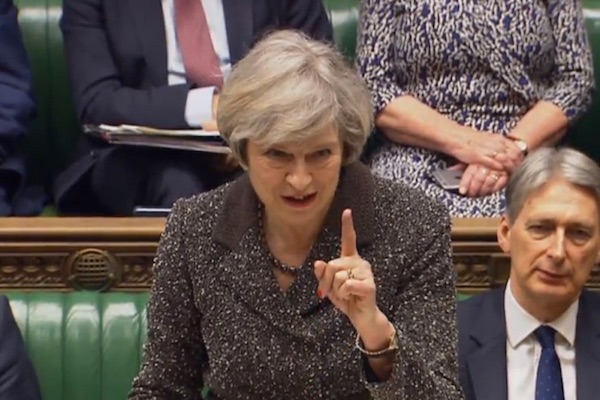Durham City has once again returned Dr Roberta Blackman-Woods as its Labour MP.
Dr Blackman Woods has held the seat since 2005. In 2015, she had an impressive majority of 11,439, but that was boosted tonight to 12,364 as she gained an extra 5,176 votes.
It was a positive night for Labour across the UK and a disastrous one for the Tories. The UK will now have a hung Parliament. Though the Conservatives will be the largest party, they have lost their overall majority at Westminster.
Unlike some other north-east constituencies where the Tories had hoped to overturn significant Labour majorities, there was little doubt that Durham City was going to remain red.
It would have taken a 12.5% swing from Labour to the Tories for the Conservatives to take the seat, something that not even the polls showing the greatest Tory leads were predicting.
But the Tories failed to gain most of the north-east seats they were targeting, with constituencies like Sedgefield, Darlington, Hartlepool and North West Durham all staying red. The only seat Labour lost in the north east was Middlesbrough South and Cleveland East.
In Durham City, the Conservatives finished second with 14,408 votes. Despite it being a bad night for the Tories nationally, their Durham City candidate – university lecturer Alexander Lawrie – managed to pick up an extra 4,251 votes, many of which came from ex-UKIP supporters.
The Liberal Democrats came third with 4,787 votes, UKIP fourth with 1,116 and the Greens fifth with 797.
Independent Jim Clark got 399 votes and Jon Collins, of the Young People’s Party, limped in last with 45.
After the result had been declared, Dr Blackman-Woods said that she had been particularly pleased to see larger numbers of young people voting and getting involved in politics.
Dr Blackman-Woods said, “Young people in particular are very taken by Jeremy.”
Labour had made a massive effort to get the youth vote out, after polls suggested a lot of Labour support was concentrated in younger age groups. Mr Corbyn appeared in the music magazines NME and Kerrang!, spoke at a Libertines gig, and won the endorsement of leading grime musicians.
Labour targeted Facebook ads at younger voters in the last hours of the campaign, and
there were reports yesterday of large numbers of students queueing to vote in the UK’s university towns.
Roberta Blackman-Woods admitted that she had previously had her doubts about Jeremy Corbyn. She resigned from Labour’s front bench after Brexit, but then came back after Mr Corbyn won his second Labour leadership election.
Dr Blackman-Woods said, “I was critical of Jeremy over Brexit, but I did go back and support him.”
Nationally, Labour has defied most opinion polls and had a surprisingly good night.
Shortly after the election was called, the polls had the Tories up to 25 points in the lead. Labour, however, managed to claw much of that back. Polls in the later stages of the contest ranged from Labour being 1 point to 12 points behind.
At the time of writing, Labour had gained 40.2 % of the vote and the Tories 42.36%, with Labour having won 260 seats (up 31) and the Tories 312 (down 13). The Liberal Democrats have won 12 seats (up 4) and the SNP 35 (down 19).
The most likely government to emerge from all this will be a Conservative administration propped up by Northern Ireland’s Democratic Unionist Party. This could be an interesting pairing as – though the DUP are socially conservative and keen supporters of Brexit – the party has a history of voting against most of the Tories’ austerity legislation.
In addition to their energising of the youth vote, Labour’s fightback has been credited to an ambitious, fully costed manifesto that contained a number of popular policies and to the fact that Jeremy Corbyn’s campaign performance was much better than many people expected.
How Jeremy Corbyn’s Labour manifesto will save millions from poverty https://t.co/m27PGO5TjN pic.twitter.com/J0js88RhNE
— Mirror Politics (@MirrorPolitics) June 8, 2017
The Tories, on the other hand, were criticised for having an uncosted manifesto and for unpopular policies such as the dementia tax. Theresa May’s campaign performance was also seen as lacklustre, with the Prime Minister facing criticism for ducking TV debates and for repeating soundbites rather than properly answering questions from journalists and the public.
It remains to be seen if Theresa May will stay on as Prime Minister. There is talk of a challenge to May from Boris Johnson. Former Tory MP George Osbourne has described the Conservative manifesto as “one of the worst manifestos in history” and said the exit polls indicating a Labour fightback were “catastrophic.”
But other Tories seem to want May to continue and dread the instability that will be caused by a leadership challenge.
Dr Roberta Blackman-Woods has served as Labour’s shadow minister for local government, communities and housing. Before becoming an MP, she worked in academia, lecturing in social sciences at Newcastle University, Oxford University and Northumbria University. She has also served as a local councillor.
(Featured image courtesy of Tiocfiadh ar la 1916, from Flickr Creative Commons)


























